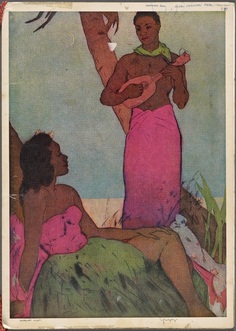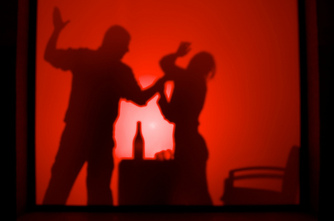Artist Paints with Toxic Sludge to Raise Awareness of Coal Mining PollutionFrom Huffington Post: "John Sabraw is an artist and professor from Ohio who's devised a unique way of raising awareness of his state's pollution problem.
Using toxic runoff found in the Ohio River region, Sabraw produces his own DIY pigments -- bold yellows and reds that are sourced from the oxidized sludge of abandoned coal mines. A masterful feat of art-meets-science on their own, the paint colors eventually became the basis for a primordially beautiful painting series, bringing light to the ecological dilemma of the river region." See some of his paintings, and read more about his process, here. |
|
|
|
"The City Dark" - DocumentaryFrom POV: "Is darkness becoming extinct? When filmmaker Ian Cheney moves from rural Maine to New York City and discovers streets awash in light and skies devoid of stars, he embarks on a journey to America’s brightest and darkest corners, asking astronomers, cancer researchers and ecologists what is lost in the glare of city lights.
Blending a humorous, searching narrative with poetic footage of the night sky, The City Dark provides a fascinating introduction to the science of the dark and an exploration of our relationship to the stars." |
What Can Old Hawaiian Menus Reveal About Changing Ocean Health?Adapted from Smithsonian.com: Ever since the 1920s, tourists have snuck home colorful menus from their Hawaiian vacations as souvenirs.
Recently, ecologist Kyle Van Houtan realized that these old menus could serve a higher purpose than gathering dust. The stuff of breakfast, lunch and dinner plates, he realized, could potentially fill in gaps of historic records of fish populations by showing what species were around in a given year." To find out more of what he learned, see this article. |
A New Way to Recycle: Building Houses Out of Plastic Bottles in Argentina, Guatemala and NigeriaIn 2001, Alfredo Santa Cruz of Puerto Iguazu, Argentina was looking for a way to survive the economic crash by sorting through trash for items to resell. Instead, he devised a way to use plastic bottles, aluminum cans and cardboard to create a sturdy home with interior furnishings. He has been so successful that he gained worldwide media attention for this innovative home constructed of waste materials - and is now teaching others how to do the same.
To see more of Alfredo's house, watch the video to the right, and read this article. For more information about how other people around the world have also created homes and schools using plastic bottles, see this article: |
"Domestic waste can be transformed into useful stuff. We developed our own technique, which allows people to build a house that's perfectly functional at a very low cost and with their own hands. This is not just a project, but a reality." --Alfredo Santa Cruz |
Hotter World Means Hotter Tempers, More ViolenceFrom TIME magazine: " A recent study in the journal Science found that...rising temperatures have the greatest effect on human conflict; the equivalent of a five degree Fahrenheit increase in an average U.S. county over a month, for example, could raise the odds of personal violence such as assault, murder and domestic violence by 4%, and the risk of civil war, riots or ethnic violence by 14%.
But whether it’s a drought in India, a heat wave in the U.S. or an extreme change in rainfall in Africa, Asia or South America, the outcomes tend to be the same: more wars, more murder, more riots and more domestic violence." |
“All around the world - across different societies in the modern world as well as throughout history - we find that human conflict seems to be linked to changes in climate.” |


